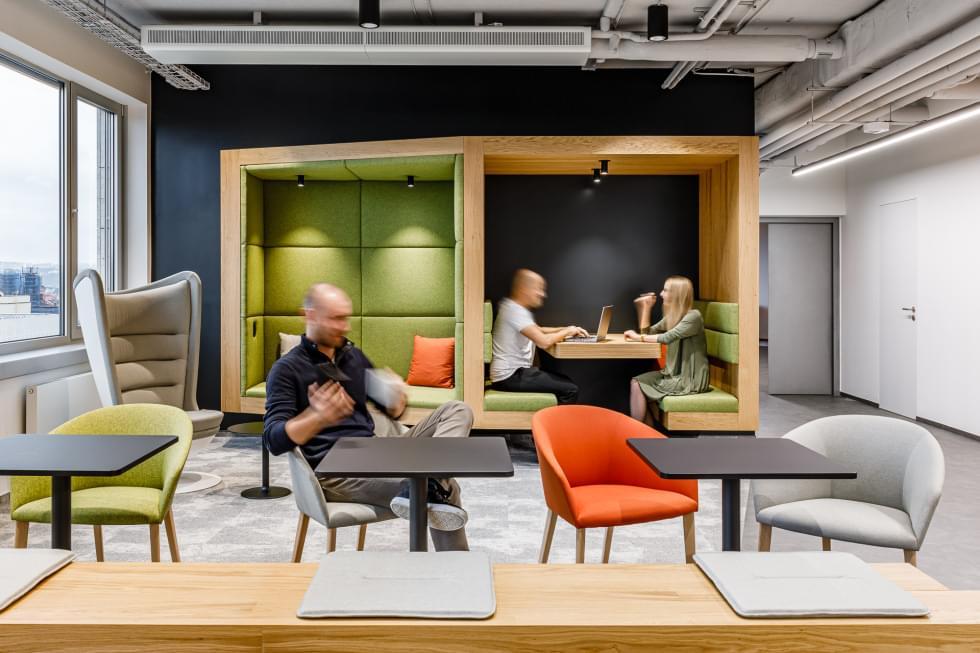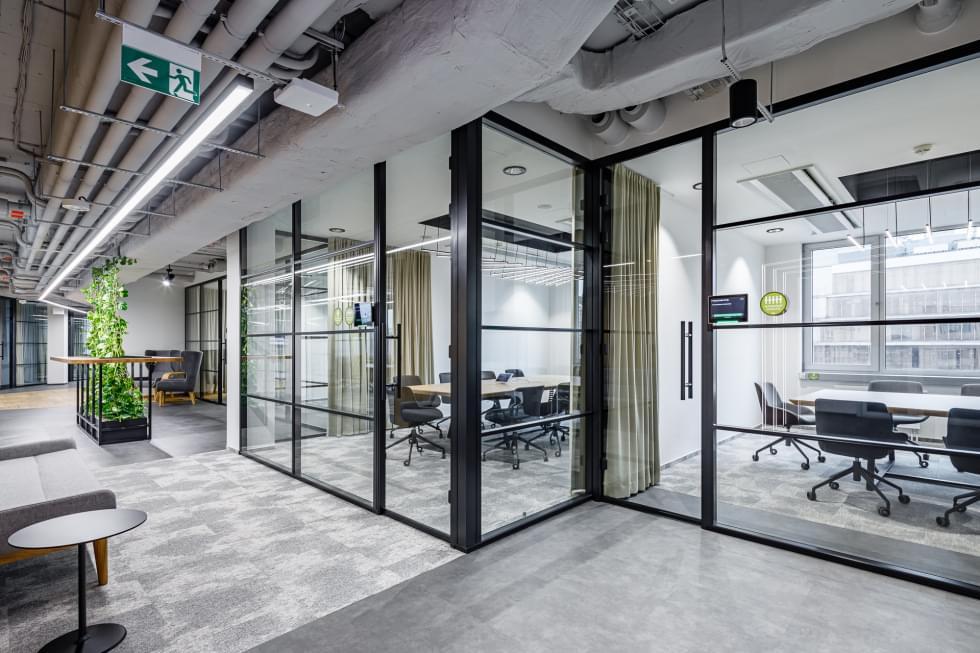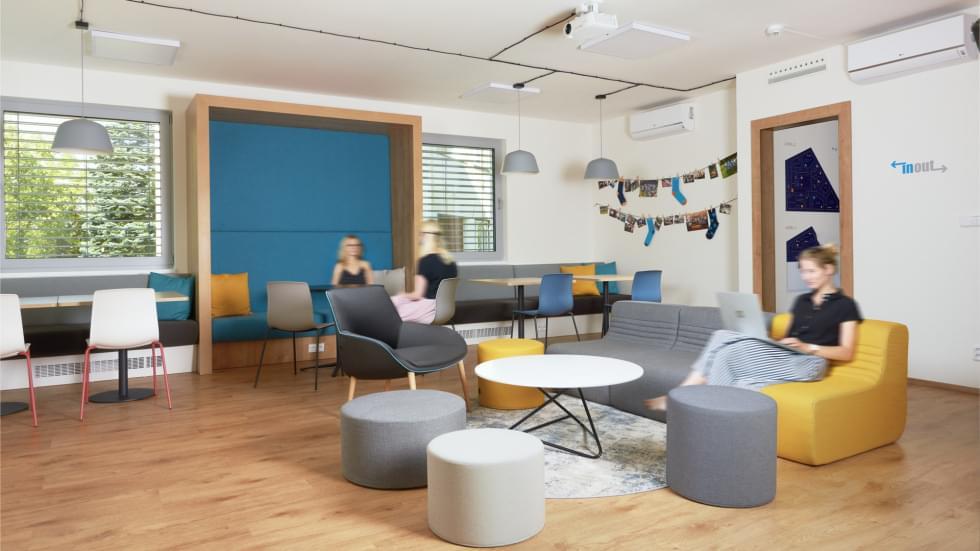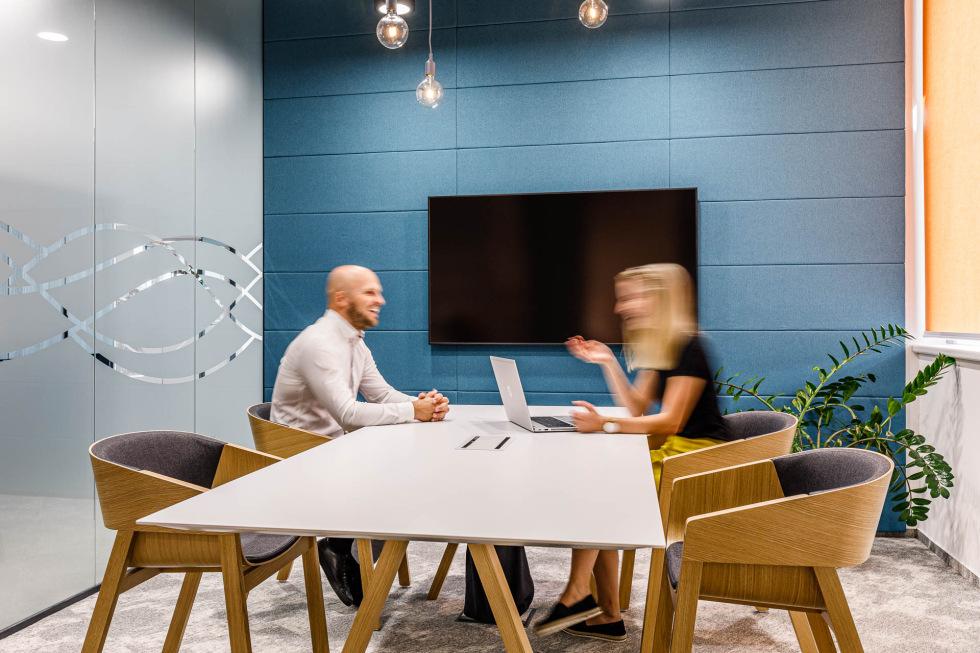What do millennials expect from offices and corporate culture?
Every person born between 1981 and 1996 is part of the generation known as millennials. As early as 2025, this cohort will represent up to 50% of the world's workforce. It is therefore obvious that employers should be extremely interested in what unites millennials when it comes to requirements regarding the work environment, space design or corporate culture. Feedback from employees should be one of the decisive factors in the evolution of office space. So what are the needs, wishes and desires of millennials in the office?
Millennials are characterized by relatively frequent changes of occupation. On average, this generation moves from one job to another every two to three years. According to a survey by Deloitte, however, this trend is beginning to reverse. The number of millennials who want to leave their employer within two years decreased from 49% to 31% in 2020. Of course, the economic uncertainty posed by the coronavirus pandemic plays an important role here.
However, in addition to the fear of losing one's livelihood, many respondents also report that employers are much more willing to meet the needs of young employees in terms of their values. The things millennials value most in employers are:
● An inclusive approach (71% of respondents)
● Positive impact on the local community (69% of respondents)
● A stimulating and motivating work environment (67% of respondents)
● Active mentoring of new employees (65% of respondents)
● Reduction of negative impacts on the environment (61% of respondents)
Sitting in the same chair, at the same desk, every day from nine to five. This certainly no longer cuts it today, and millennials find it difficult to identify with such a regimen. Of course, at least partial work from home is gaining in popularity in the current situation, but flexibility is also needed in the office. During the day, employees may have different demands on their work environment, and office design can help through modular furniture and multipurpose solutions.
The flexible use of space is also associated with reduced demands on total office space. This means lower rental costs for the company and at the same time a theoretically lower carbon footprint of the office. According to Katarina Jeremić, up to 45% of millennials prioritize greater work flexibility over higher salaries.
A place without the hustle and bustle of the office
The popularity of open office layouts is not disappearing, but the modern approach to open space in the office is a far cry from rows of desks arranged side by side. Millennials are demanding more privacy and the opportunity to get away from the noise and hustle of the office. That is why cleverly arranged glass partitions that divide the space but do not deprive it of light and airiness are extremely popular today. Privacy and silence are then ensured by soundproof booths or designated quiet zones. Thanks to them, employees can recharge their batteries at any time during the day or handle their affairs without fear of being heard by the entire floor.
Even though millennials expect a certain level of privacy, a mass return to classic closed offices is not expected. An open but fragmented and flexible space ensures the cooperation that this generation prizes much better.
In a 2014 study, office design expert Jonathan Webb found that students often struggle to adjust after school. Instead of a university environment where the emphasis is on asking questions, curiosity and a willingness to clarify problems, they are thrown into the workplace waters and are expected to swim right away. From the company's point of view, it makes sense to think about how to help young people enter the work process as smoothly as possible.
According to the study Millennials at Work: Investigating the Specificity of Generation Y versus Other Generations, openness and the ability to listen are among the qualities of employers most valued by millennials. Better mentoring is also reflected in office design. Millennials respond much more positively when the boss's office is close to other employees' workspaces instead of on the top floor that you can't reach without a special card.
Millennials are the first generation to grow up with relatively easy access to personal computers, the internet, and later smartphones. Technology is a part of their daily lives and they do not tolerate poor technological infrastructure in the office. Properly used, modern technologies can better connect colleagues around the world and provide the best foundation for realizing the full potential of employees.
An office is no longer a grey warehouse for employees. Successful companies strive to retain talented people also through thoughtful design based on the real wishes of employees. Millennials choose employers according to their offices, and it should be remembered that they will soon dominate the labour market together with the upcoming Generation Z.
Images by Jiří Bednář, Petr Andrlík













